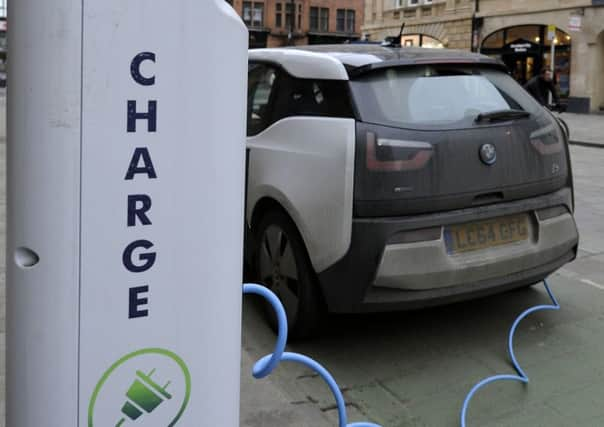Brian Brotherston: The rise of electric cars will fuel the debate on how to power them all


Supplies of hydrocarbon fuel will become scarce and progressively expensive.
The health hazard to populations from exhaust fumes, especially in cities, will eventually become unacceptable and need to be addressed quickly. The days of the internal combustion engine are numbered.
Advertisement
Hide AdAdvertisement
Hide AdThere are partial solutions to the problem, but none quite so positive as the complete elimination of hydrocarbon use in road vehicles.
The answer is the rapid adoption of electric vehicles, firstly for cars and vans (the technology is almost developed) and then for larger transport vehicles. We have already been through a generation of larger electric vehicles in cities well over 100 years ago – electric vehicles were a common sight in the late 19th and early 20th century.
In the fullness of time, when all vehicles are electrically driven, we will need a much larger electrical base load within our supply industry to provide power.
The question then is how our electrical base load will cope when under pressure to provide the power for all the electric vehicles in the UK. Indeed, just knowing the impact of all the private electric vehicles – before we even consider commercial – would be a start.
Assuming that the grid would need to service this demand, what would be the impact on the transmission system if required to supply at this level? This is important as our energy industry evolves, with a move away from fossil fuels to renewable, and sometimes less reliable, energy supplies at a time when demand will be rising.
Currently, the installed base load capacity in the UK is well known, and planned maintenance within the system means that available capacity – including the addition of extra generation at peak times – should be known and planned to satisfy fluctuating demand.
The debate about what the contribution and influence of renewables to the overall capacity of the grid should be will continue for some time.
However, reliance on renewables to provide a significant part of base load capacity will not happen until an efficient way of storing generated power is found. At least we have plenty of water at sea to provide a head for large pump storage schemes.
Advertisement
Hide AdAdvertisement
Hide AdAs the shift to electric vehicles continues, we have a multitude of technical, economic, and social problems to solve. Energy is just part of the issue. A major rethink and fundamental changes to our road transport provisions, here and abroad, is also necessary.
If we do not begin to make significant changes soon, hydrocarbon fuel exhausts will progressively adversely affect the air quality in our cities.
Brian Brotherston is a retired chartered professional mechanical engineer. His career has been spent working in the nuclear industry.